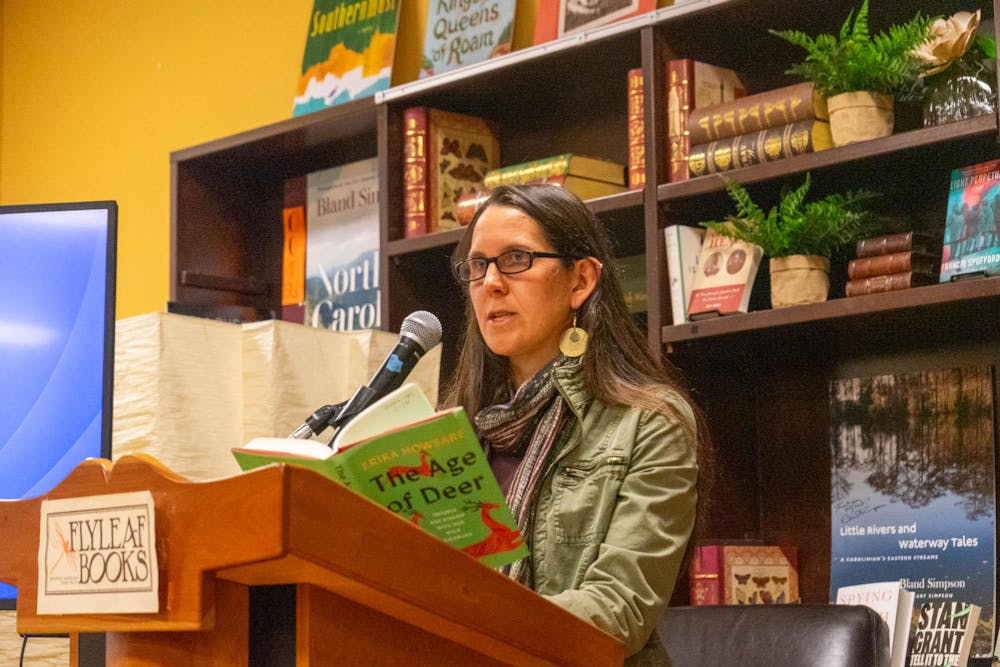At a talk on Tuesday in Flyleaf Books, Virginia-based author Erika Howsare untangled the centuries-old tale of humans and deer.
In her new book "The Age of Deer," released on Jan. 2, Howsare synthesizes the relationships between humans and deer, and the questions they raise about the blurred boundaries of the natural world.
In her talk, Howsare explained that deer have represented many things throughout American history. In colonial North America they were seen as icons of wilderness. Today, they are suburban pests.
Howsare has a background in local journalism, and does not describe herself as a deer specialist. While she did not know much about deer when she began writing her book, Howsare said she was swept up by a heart-based connection with the animal.
“It was all kind of starting from square one,” she said. “In a way, that's what made it fun.”
The chapters of the book are the consolidation of research Howsare completed over the past five years. For the project, she spoke with many individuals who work with deer, from Indigenous groups to a man who cleans roadkill.
The book details the mythology, colonial history, conservation science, art, literature and ecology behind the animals.
“We do have such a long, deep connection to [deer] through history,” she said. “In our contemporary world, our relationship is very fraught, it's very tangled, it's full of contradictions.”
Originally from rural Pennsylvania, Howsare’s first exposure to the animal was through hunting culture.




